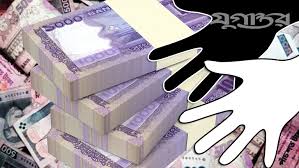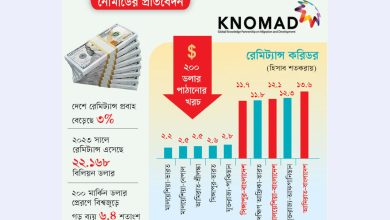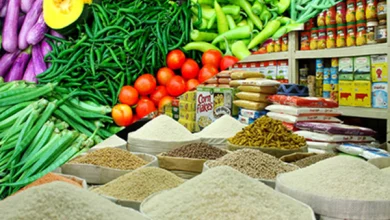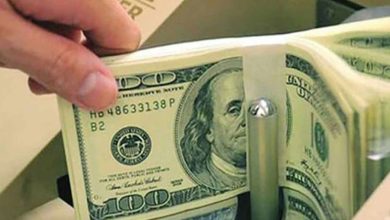Private sector foreign loan repayment $5.21b higher than receipt in 11 months
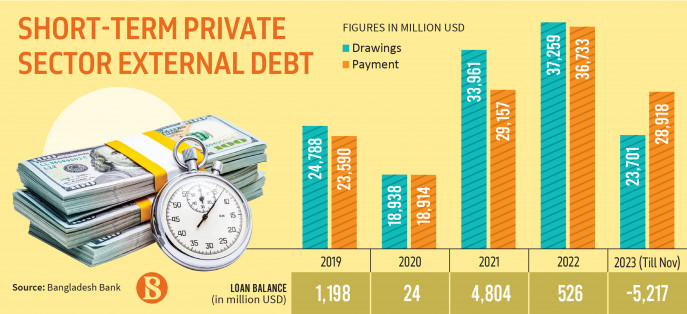
Bankers say private sector’s foreign short-term debts drastically fell due to the rising interest rate of the dollar in the international market and continuous increase in dollar rate
Bangladeshi businesses repaid $5.21 billion more in principal and interest for short-term foreign debt than loan receipt in the first 11 months of 2023.
The additional payment of debt is putting fresh pressure on the dollar liquidity and dwindling forex reserves in the country.
According to the Bangladesh Bank, Bangladeshi businessmen received short-term private sector foreign debt amounting to $23.70 billion in the January-November period while their repayment of loan and interest amounted to $28.92 billion.
A senior central bank official told The Business Standard, “In the first 11 months of 2023, we have experienced a significant decline in our forex reserves. One of the reasons for this is the reduction in short-term foreign loans in the private sector. Imports were funded through these short-term loans. The current decrease in imports has also led to a somewhat reduced demand for these loans.”
Bankers say private sector’s foreign short-term debts drastically fell due to the rising interest rate of the dollar in the international market and continuous increase in dollar rate.
Apart from this, other costs of taking loans are also increasing. Now 20% tax is payable on foreign loan interest. Interest rates on loans have already increased. Taxes add an extra 1.7%, making the net interest over 10.2%. Businessmen are not interested in taking loans by paying so much interest.
According to central bank data, private sector foreign loans averaged $2.15 billion in the January-June period of 2023. During the same period, previous debt and interest payments averaged $2.62 billion, meaning $474 million had to be paid extra every month.
Central bank data also shows private sector foreign loan interest payments were $138 million in 2021. The payments rise to $246 million in 2022. However, the interest payments in the 11 months to November 2023 totalled $593 million.
The short-term private sector foreign debt stood at $16.41 billion at the end of December 2022. It fell to $11.96 billion at the end of November 2023.
According to the central bank data, Bangladesh’s gross foreign exchange reserves stood at $26.82 billion at the end of 27 August 2023 which was $33.93 billion in the same period of 2022 meaning the reserves decreased by $7.11 billion in one year.
On the other hand, according to the Balance of Payments and International Investment Position Manual (BPM6) at the end of 27 December 2023, the reserves were $21.44 billion.
Syed Mahbubur Rahman, managing director and CEO of Mutual Trust Bank Limited , “Private sector foreign loans were predominantly utilised for buyer’s credit. The quantity of this loan, which is characterised by a widespread increase in international interest rates and a depreciation of the currency, has been reduced. Additionally, due to various uncertainties in investment choices, it has led to a decrease in the volume of imports for business operators. This stands as one of the major reasons for the reduction in foreign loans in the private sector.”
According to the central bank report, foreign short-term loan buyer’s credit amounted to $9.56 billion at the end of 2022. At the end of November 2023, the debt decreased by about $3 billion to stand at $6.47 billion.
At present, foreign loans have to be taken at the Secured Overnight Financing Rate (SOFR) rate plus an additional 3.5%. The SOFA rate in January 2023 was 4.31% although in January 2021 and 2022, the rate was less than 1%. But the rate increased to 5.39% in November 2023.
The SOFR is a benchmark interest rate for dollar-denominated derivatives and loans that replaced the London Interbank Offered Rate.
According to the central bank data, private foreign short-term loans in the country in 2021 was $33.96 billion and $37.25 billion in 2022. But in the first 11 months of 2023 the amount came down to $23.70 billion.
A senior official of Bangladesh Bank told “The dollar interest rate has increased significantly compared to before. In addition, due to the increase in the dollar rate, traders are also looking at the issue of risk in loan terms. As a result, they are paying more debt, which puts pressure on our balance of payments and reserves.”
As businessmen’s liabilities increased with the increase in dollar rate, they made higher repayments without taking new risks, he said.
The central bank is currently selling dollars from reserves at the rate of Tk110. Banks are supposed to sell dollars to importers at Tk110. However, businesses have to collect the dollar at Tk120-24 for their import payments and repayment of earlier debts.

